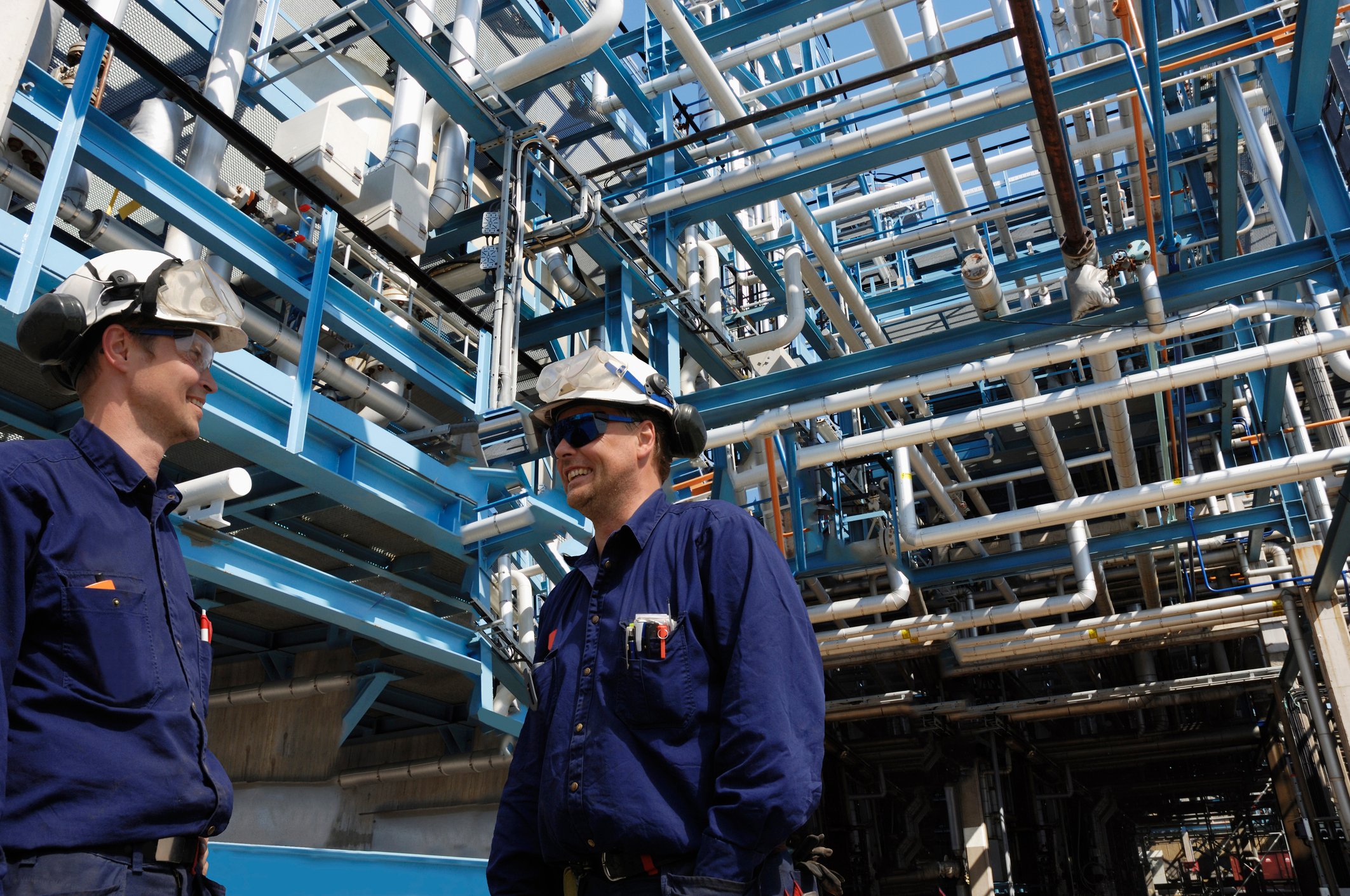We're smack-dab in an earnings season that, when all is said and done, promises to be as full of surprises as any in recent memory. However, as it relates to DuPont (DD +0.00%), at the end of the third quarter my article describing its results was titled "A Solid DuPont Trips on a Stumbling Economy." In reality, that same header would be apropos for the fourth quarter as well.
Obviously, the company has some key strengths, not the least of which is the perpetuation of strong and steady growth in its agriculture segment. At the same time, however, it's being hit by global economic softness, the reversal of which appears to me to be farther off than some other analysts and economists anticipate.
For the quarter, the company earned $111 million, or $0.12 per share, down 70% from the $373 million, or $0.40 per share for the comparable quarter-earlier quarter. Despite the sharp slide on the per-share income line, however, the results handily topped the consensus of $0.07 per share among the approximately 20 Wall Streeters who follow DuPont. At $7.3 billion, revenues were essentially flat with those of the final quarter of 2011.
As long as folks continue to eat ...
Like Monsanto (MON +0.00%), which was once a wide-ranging company involved in a broad spectrum of chemicals, bio-industry products, and medical components, DuPont is progressively gravitating toward a concentration on wares employed down on the farm or constituting part of the food chain. Oh sure, the company continues to turn out a number of other products, like whitening agent titanium dioxide. But by far its most substantial top-line growth -- 18% -- in the quarter occurred in the agriculture segment.
Both DuPont and Monsanto -- along with Syngenta (NYSE: SYT), the largest of the European-based producers -- continue to perform in yeoman's fashion developing engineered seeds (for corn, for instance) that are able to produce high yields even amid the sort of drought conditions that nearly overwhelmed U.S. farmers last year. Beyond that, it appears that the agricultural unit is likely to remain relatively sound going forward.
As Karen Fletcher, DuPont's vice president of investor relations, said on the company's call:
"Looking ahead to the first half of 2013 for the agriculture segment, we expect significant sales increases from volume and price driving a moderate earnings increase. For the full year, we expect sales growth in the low teens and margins will be pressured slightly as higher commodity prices and weather are increasing seed costs as compared to last year."
Elsewhere at the Wilmington company
As to the company's other segments, sales from the industrial biosciences and the nutrition and health units both rose year over year in the fourth quarter, as did their pre-tax operating income, or PTOI. Results from performance materials were mixed, with sales sliding by 5%, but PTOI jumping by a whopping 68% on the basis of strong automotive markets in China and North America and lower feedstock costs. The electronics and communications unit was the site of decline in both sales and operating income.
The safety and protections segment was mixed, with sales increasing modestly, but PTOI sliding as plant utilization declined. The company's real anchor during the quarter was the performance chemicals unit, whose sales dropped by 15%, while its PTOI plunged by a whopping 54%, as the cyclicality of demand for the titanium dioxide hit home. As CEO Karen Kullman noted, however, expectations are for a strengthening in TiO2 demand as the year progresses. "This is a very strong business," she said. "It's a very strong cash generator."
Careful sculpting
DuPont, which, to my way of thinking, is a solidly managed company, continues to add units in its areas of future concentration -- such as its 2011 purchase of Danisco, a Danish manufacturer of enzymes and specialty food ingredients -- and to shed those that aren't considered to constitute core entities. In the latter area, it continues to move toward the completion of its $4.9 billion sale of its performance chemicals unit -- largely a maker of paints for automotive and industrial applications -- to the Carlyle Group (CG +0.00%), a major private-equity firm.
The Foolish bottom line
While I'd recommend that Fools remain on the sidelines vis-a-vis DePont until a perceptible updraft begins to lift the company, I must note Kullman's closing remarks from the company's post-released call: "As we begin 2013, I'm confident we have the right strategies and programs in place and that we will execute well against them. Last month we backed up that confidence with a $1 billion share buyback authorization."







